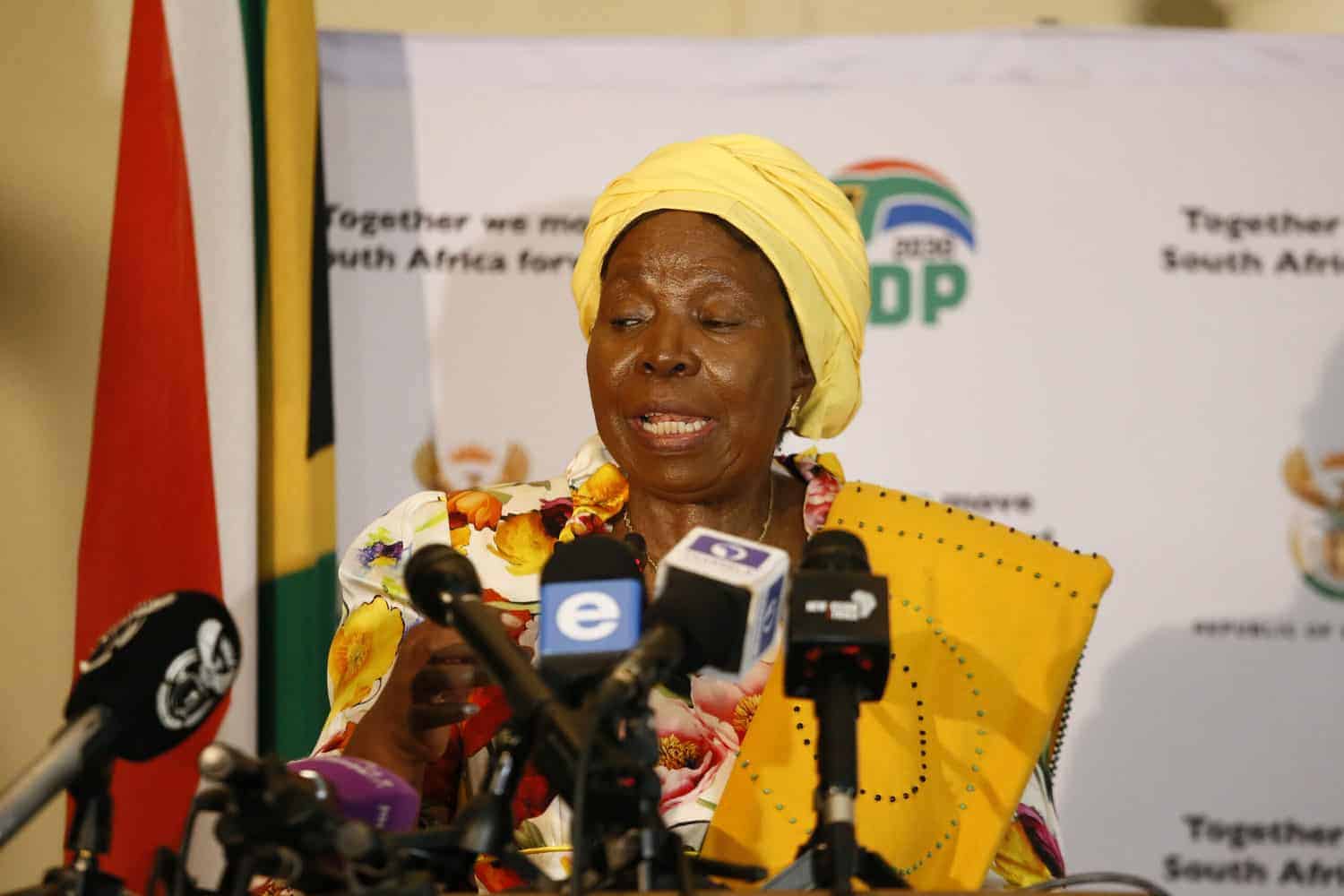“If you are value-driven, you minimise corruption. We must talk about the whole value chain. If the value chain is right, the end result will be right."

Minister of Cooperative Governance and Traditional Affairs (Cogta), Dr Nkosazana Dlamini-Zuma. Picture: Gallo Images/Phill Magakoe
If unethical practices continue to plague local governance, the country will not be able “investigate and prosecute” away crippling government corruption, says National Director of Public Prosecutions (NDPP), advocate Shamila Batohi.
Batohi was addressing the launch of the Local Government Anti-Corruption Forum and the Local Government Ethical Leadership Initiative by cooperative governance and traditional affairs minister, Dr Nkosazana Dlamini-Zuma.
The forum was established in October 2020 under the chairship of the Special Investigating Unit (SIU), supported by the department of cooperative governance as the Secretariat.
The forum was formed to foster collaboration and coordination on anti-corruption matters among the stakeholders at the local government level.
Delivering the keynote address, Dlamini-Zuma said where there is good governance, there is “little room for corruption”.
“If there’s accountability, you minimise corruption. If there’s integrity, you minimise (corruption),” said Dlamini-Zuma.
“If you are value-driven, you minimise corruption. We must talk about the whole value chain. If the value chain is right, the end result will be right.
We must have ethics, integrity, accountability and good governance.” Corruption, she said, was “an end result of unethical behaviour, bad governance and non-accountable leadership”.
She urged leaders across society to “do the right thing”. “As leaders, we must be the conscience. We must make sure that the right thing is done.
We must make sure that there is accountability. “We must be prepared to take responsibility for the wrongdoing.
It is people who do wrong, it is not local government as a sphere. It is not government as an institution,” said Dlamini-Zuma.
She said it is critical for society to be ethical, disciplined and transparent. On law enforcement, she said agencies should be accountable and impartial.
She decried the time it takes for cases to be finalised in court after the initial arrest of suspects, saying this has the potential to discredit police investigations and prosecutions.
“It erodes the trust in (law enforcement systems).” SIU head advocate Andy Mothibi said corruption is prevailing in every sector of society.
An anti-corruption vulnerable sector risk assessment conducted by the National Anti-Corruption Local Government Ethical Leadership Initiative found that corruption is perverse in all sectors of society.
The exercise identified risks in the health, local government, infrastructure, border management, state-owned entities, education, NPOs, and energy sector, among others.
Batohi said while government has good crime fighting strategies, the country often does not implement these.
“In law enforcement, we are working really hard on the reactive side of fighting corruption. But the root cause – in the local government space – is a lack of good governance and ethical leadership.
That is where we need to focus,” she said. The country cannot “investigate and prosecute” itself from the problem of corruption, “as long we do not attend to the root cause”, the NDPP reiterated.
ALSO READ: Corruption is everywhere, and affects everyone
Download our app